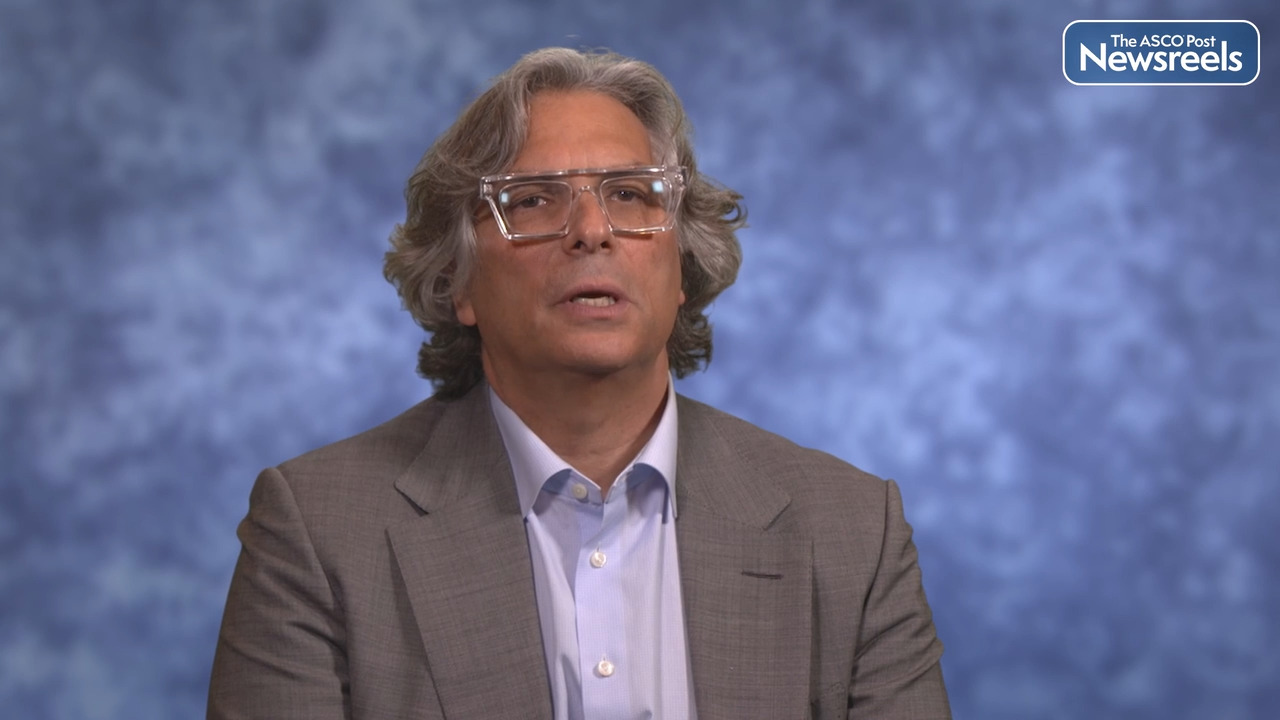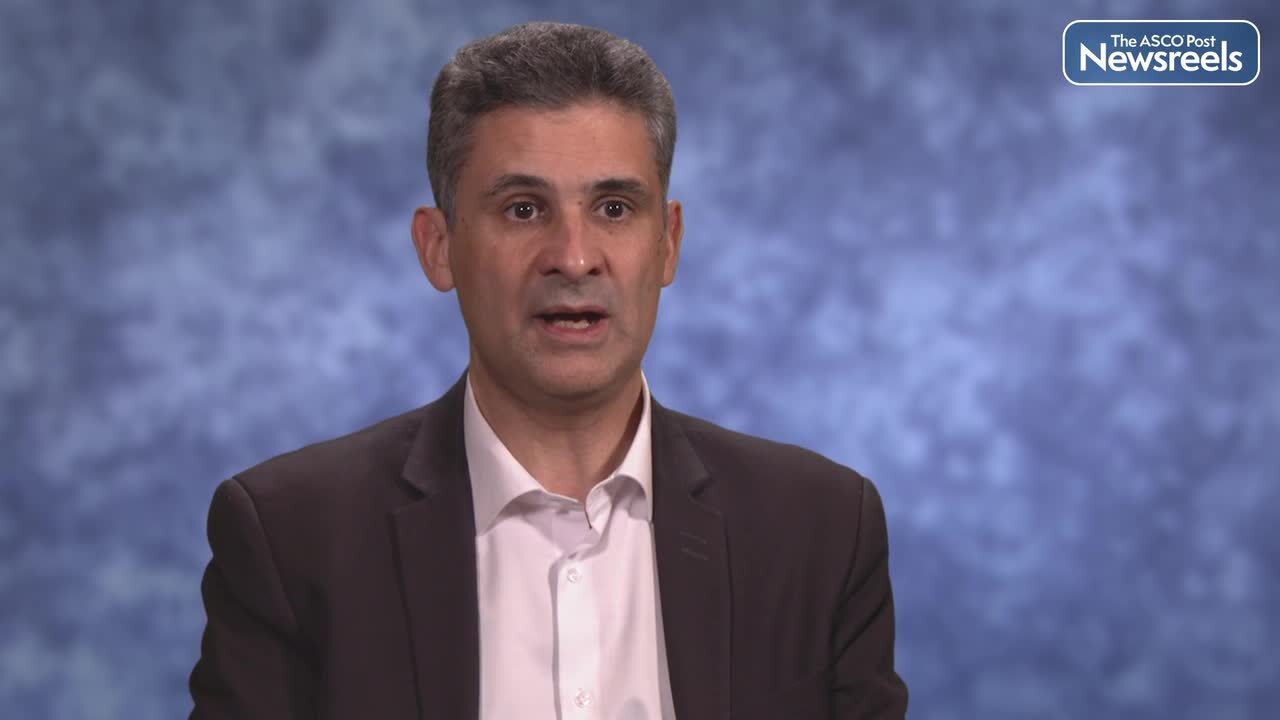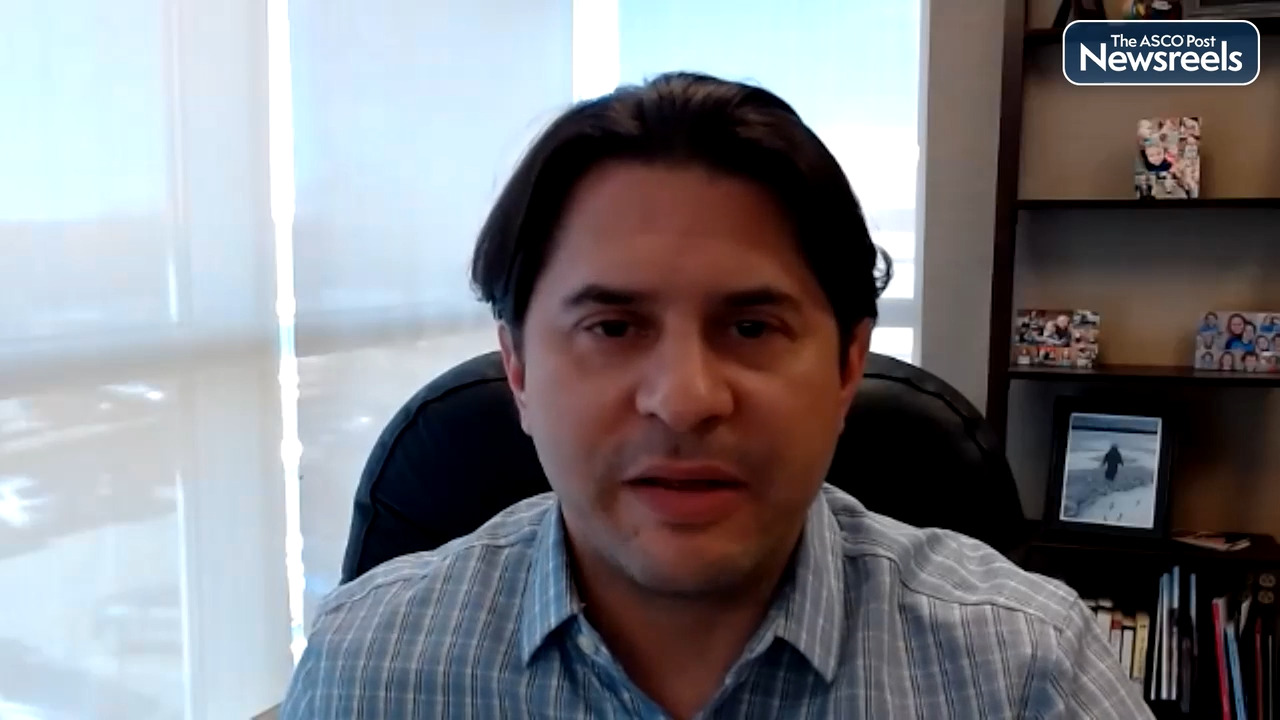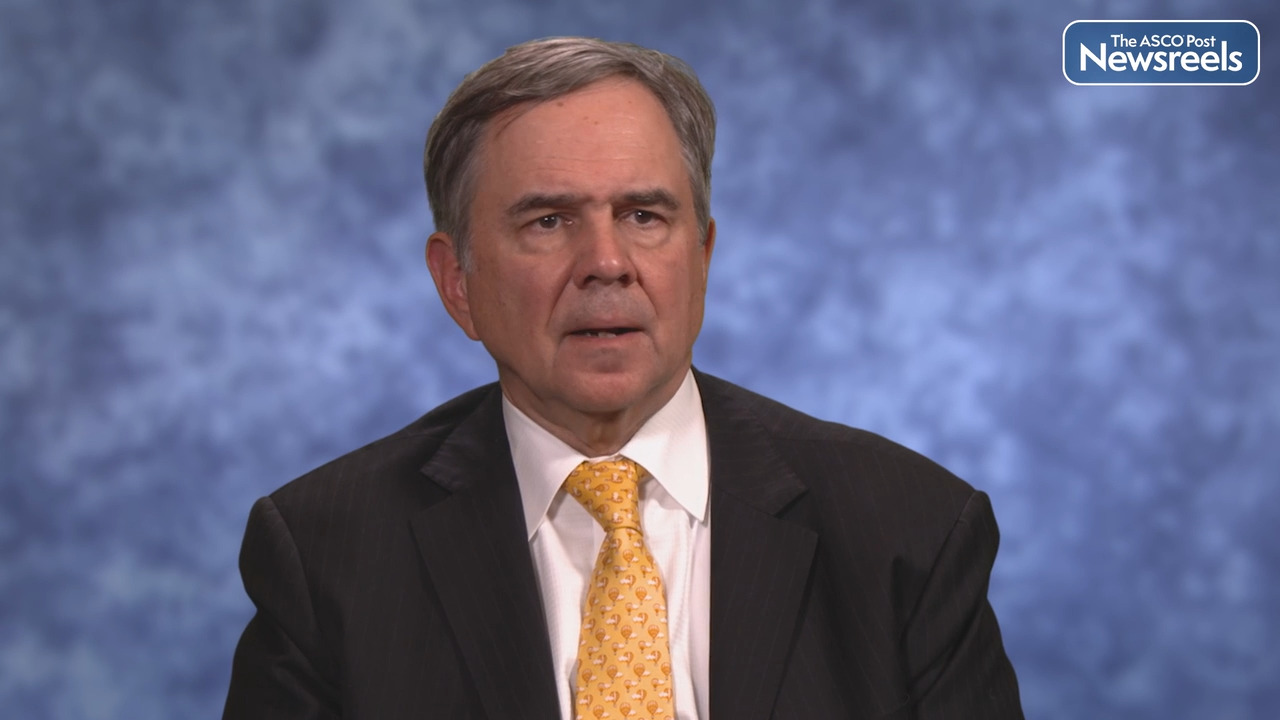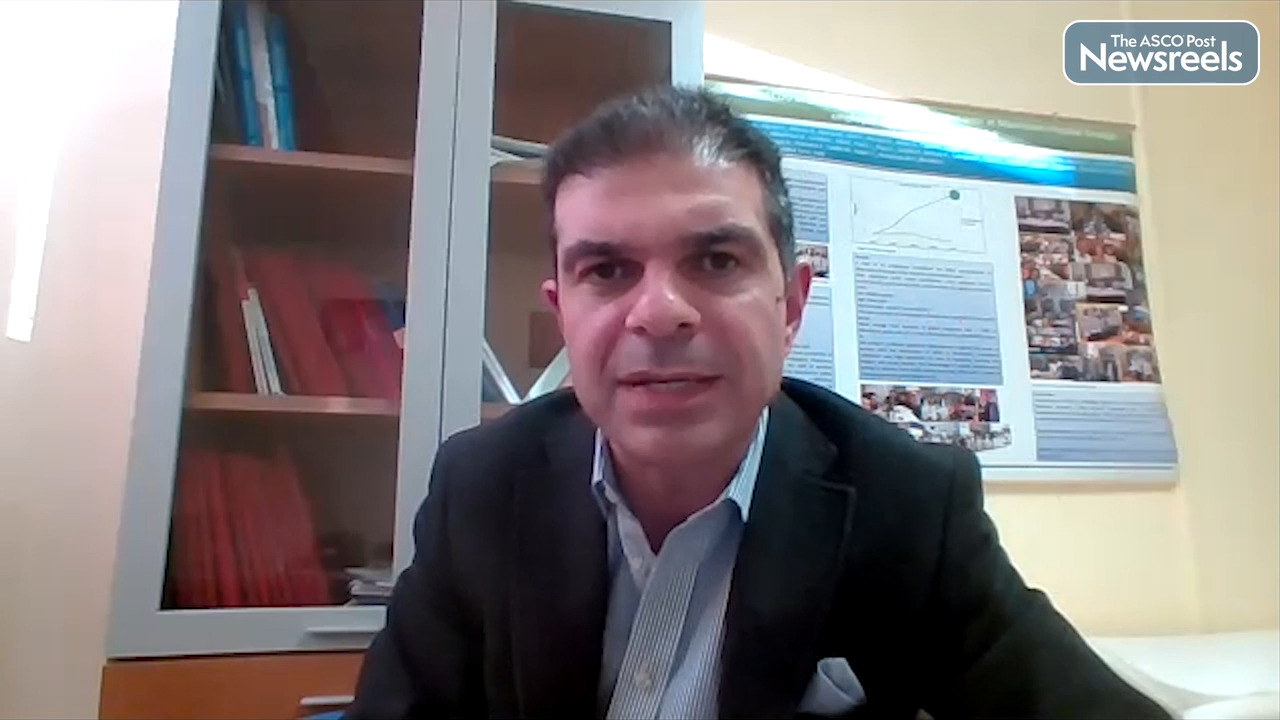Tanya B. Dorff, MD, on Prostate Cancer: Early Data on PSCA-Targeted CAR T-Cell Therapy
2022 ASCO Genitourinary Cancers Symposium
Tanya B. Dorff, MD, of City of Hope National Medical Center, discusses the first-in-human phase I findings showing that prostate stem cell antigen (PSCA) CAR T-cell therapy is feasible in patients with metastatic castration-resistant prostate cancer, with preliminary antitumor activity exhibited.
The ASCO Post Staff
Neil E. Fleshner, MD, MPH, of the Princess Margaret Cancer Centre, discusses phase II results from the ACDC-RP trial, which indicate a significant tumor response to neoadjuvant abiraterone acetate plus prednisone and leuprolide, with or without cabazitaxel, in patients with high-risk prostate cancer. Those who exhibited either a complete response or minimal residual disease experienced higher rates of progression-free survival. According to Dr. Fleshner, genomic efforts are underway to determine predictors of response.
The ASCO Post Staff
Karim Fizazi, PhD, MD, of Gustave Roussy and University of Paris-Saclay, discusses results from a first-in-human phase I/II trial, which showed that administering ODM-208—an oral, nonsteroidal inhibitor of the enzyme CYP11A1—to men with metastatic castration-resistant prostate cancer who were pretreated with abiraterone/enzalutamide and taxanes was effective in blocking the production of steroid hormones. It also showed antitumor activity, especially in men with AR mutation–positive cancers.
The ASCO Post Staff
Matthew R. Zibelman, MD, of Fox Chase Cancer Center, discusses phase I/II results from a study of treatment-naive patients with advanced renal cell carcinoma who received a combination of the immunotherapy (IO) nivolumab and the tyrosine kinase inhibitor (TKI) axitinib. The findings suggest that the efficacy of this regimen is comparable to that of currently available IO/TKI combinations for this population and has a similar safety profile (Abstract 291).
The ASCO Post Staff
Daniel P. Petrylak, MD, of Yale Cancer Center, discusses new data on the antitumor activity of neoadjuvant treatment with enfortumab vedotin-ejfv monotherapy in patients with muscle-invasive bladder cancer who are not eligible for cisplatin.
The ASCO Post Staff
Massimo Di Maio, MD, of the University of Turin, discusses the Meet-URO12 study, which showed that maintenance niraparib plus best supportive care (BSC) did not prolong progression-free survival, compared with BSC alone, among patients with urothelial cancer that did not progress after first-line platinum-based chemotherapy.
